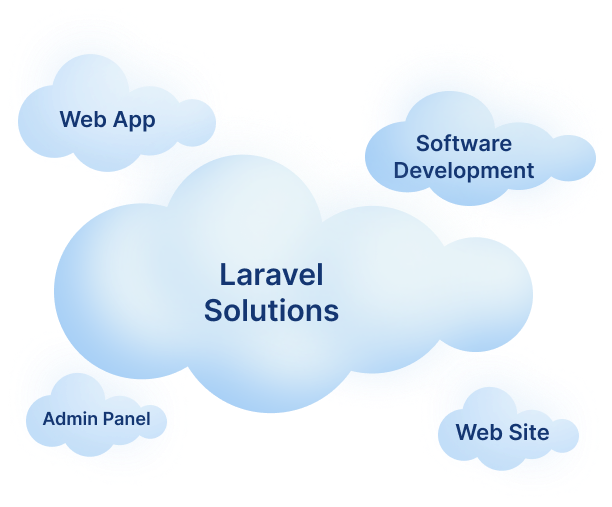Interview Questions
Basics of CodeIgniter:
What is CodeIgniter?
An open-source PHP web application framework called CodeIgniter was created to make the process of creating dynamic, scalable websites easier and faster. Model-View-Controller (MVC) architecture is followed, and it provides a simple and light toolbox for effective coding.
Explain the features of CodeIgniter.
Because of its many capabilities, CodeIgniter is a well-liked option among developers. Its compact size guarantees effective functionality without enforcing stringent coding guidelines. With robust community support and compatibility across common hosting configurations, CodeIgniter offers a simple and sophisticated toolbox for web application development that happens quickly.
How does CodeIgniter follow the MVC pattern?
The Model-View-Controller (MVC) paradigm is adhered to by CodeIgniter, which divides the program into three interdependent components. Views handle display and user interface, Controllers supervise user input and interaction, and Models handle data and business logic. Code organization and maintainability are improved by this division.
What are the key benefits of using CodeIgniter?
A few of the main advantages of utilizing CodeIgniter are its compact size, well-written documentation, outstanding performance, absence of rigid coding guidelines, integrated security framework, and active community. These features facilitate rapid and effective web application development and make it simple for developers to learn.
How do you install CodeIgniter?
You can download the CodeIgniter framework from the official website, extract the contents to the directory of your web server, and then setup the application by configuring the database and other required settings. CodeIgniter is simple to set up and use because it doesn't require a special installation procedure.
What is the default database configuration file in CodeIgniter?
Application/config/database.php is the location of CodeIgniter's default database setup file. This file contains configuration options that are necessary for connecting to the database and controlling user interactions within the application, including database type, hostname, username, password, and database name.
Explain the structure of a CodeIgniter application.
A standard CodeIgniter application has a directory structure with public (for files that are accessible to the public), system (for the CodeIgniter core), and application (for code specific to the application) among other directories. Throughout the development process, this organized structure makes code and resources easier to manage.
What is the purpose of the CodeIgniter index.php file?
Every request starts at the index.php file located in the CodeIgniter root directory. It is essential for starting the framework, sending requests to the right controllers, and controlling the application's flow.
How do you enable the error reporting in CodeIgniter?
In the index.php file, set the ENVIRONMENT constant to 'development' to enable error reporting in CodeIgniter. This setup makes it possible to display comprehensive error messages, which makes debugging during the development stage more efficient.
What is the role of the CodeIgniter URI class?
Handling and processing Uniform Resource Identifiers (URIs) requires the CodeIgniter URI class. It offers operations for getting data from the URI, including segments and query strings. This class is essential for efficient request processing and routing, enabling developers to interact with the URL structure of a CodeIgniter application with ease.
Controllers:
What is a controller in CodeIgniter?
A controller is an essential component of CodeIgniter that manages user input and interaction for the application. It serves as a bridge between the models and views of the application and the user, who interacts with it. Controllers control data flow, handle requests, and select which view to show the user depending on the information they get.
How do you create a new controller in CodeIgniter?
You must declare a new PHP file in the application/controllers directory in order to add a new controller in CodeIgniter. The class inside the file should extend the CI_Controller class, and the filename should correspond to the intended controller name. This class contains methods that handle different parts of the application logic and operate as the controller's actions.
Explain the concept of controller methods in CodeIgniter.
In CodeIgniter, controller methods are functions that manage particular actions or functionalities inside a controller class. These functions are in charge of handling user input, choosing which view to load, and communicating with models to get or modify data. Every method in the program has a corresponding endpoint or functionality.
How to pass data from a controller to a view in CodeIgniter?
In CodeIgniter, you can use the $this->load->view() function and pass an associative array as the second parameter to pass data from a controller to a view. The data you wish to transmit is contained in this array, and you can access it directly as variables in the view.
What is the purpose of the CodeIgniter URI Routing feature?
With CodeIgniter's URI Routing functionality, developers may specify unique URL patterns that enhance user experience and SEO. Developers can define the structure of the application's URLs with flexibility by mapping particular URLs to their appropriate controllers and methods through the configuration of routing rules.
How can you set a default controller in CodeIgniter?
Open the application/config/routes.php file and change the $route['default_controller'] variable to the name of the controller you want to use in CodeIgniter. This guarantees that CodeIgniter will use the designated controller by default if the URL has no particular controller information.
Explain the difference between $this->load->view() and $this->load->view('view_name').
Without giving a view name, CodeIgniter loads the default view linked to the relevant controller method using $this->load->view(). In contrast, a specific view called "view_name" is loaded specifically when $this->load->view('view_name') is used. When you wish to load a view other than the one that comes with the controller method by default, the latter is helpful.
How to restrict access to a controller method in CodeIgniter?
You can either write a custom method for authentication or utilize CodeIgniter's built-in is_logged_in() function to restrict access to a controller method. You can provide or restrict access to a certain capability based on the authentication state of the user by utilizing the controller method to verify the user's status. This guarantees that specific areas of the program are only accessible to authorized users.
Models:
What is a model in CodeIgniter?
A model in CodeIgniter is an element in charge of overseeing the data logic of the application. It acts as a bridge connecting the controller and database, encapsulating operations for adding, removing, updating, and retrieving data. Models are essential to the application's handling and organization of data-related tasks.
How do you create a model in CodeIgniter?
You must produce a new PHP file inside the application/models directory in order to create a model in CodeIgniter. A class that extends the CI_Model class should be present in this file. You can define methods in this class to manage different database operations and other data-related tasks.
Explain the role of the $this->load->model() function.
Controllers use CodeIgniter's $this->load->model() function to load a particular model into the program. The controller may now access the functions and methods defined in the loaded model thanks to this function. After loading, the model creates an instance and makes its methods available for the controller to use.
How to perform database operations using models in CodeIgniter?
Creating methods in the model class to run SQL queries or make use of CodeIgniter's Active Record class are two ways to do database operations with models in CodeIgniter. These methods take care of things like getting data back, adding new records, editing old records, and removing data. Models enable an application's database interactions to be managed in an organized manner.
What is the purpose of CodeIgniter's Active Record class?
The Active Record class in CodeIgniter is a database abstraction layer that makes working with databases easier. It offers an easy-to-use, database-independent syntax for creating and running SQL queries. By eliminating SQL injection, automatically escaping values, and encouraging cleaner, more legible code for database operations, this class improves security.
How to use transactions in CodeIgniter models?
The $this->db->trans_start() method is used to initiate a transaction in a CodeIgniter model, and $this->db->trans_complete() is used to commit or roll back the transaction based on the outcome of the enclosed operations. Data integrity is maintained by transactions, which guarantee that a sequence of database operations are either entirely performed or fully reverted.
How do you load multiple models in a CodeIgniter controller?
In order to load several models in a CodeIgniter controller, call each model's $this->load->model() function using the model names as parameters. As an illustration:
PHP
Copy the programming
('Model1'); ('Model2'); $this->load->model('Model1');
The controller can make use of each model's functionality by creating instances of these models once they have been loaded.
Explain the concept of model validation in CodeIgniter.
To validate data before it is inserted or altered in the database, CodeIgniter model validation entails defining rules inside the model. Checks for necessary fields, data types, length restrictions, and custom validation criteria are examples of validation rules. These guidelines are implemented using CodeIgniter's validation module, which guarantees the accuracy and consistency of the data in the application.
Views:
What is a view in CodeIgniter?
A view in CodeIgniter is the part in charge of showing data to users. It is in charge of showing data that has been retrieved from the controller or the model and serves as an interface representation. Typically, views in CodeIgniter are HTML files with PHP code injected to enable the presentation of dynamic content.
How do you create a view in CodeIgniter?
You must produce a new PHP file inside the application/views directory in order to create a view in CodeIgniter. The HTML structure and possibly some embedded PHP code for displaying dynamic content will be included in this file. Views are used to produce the final output that is shown to the user and are connected to controller methods.
Explain the use of data binding in CodeIgniter views.
Associating data from the controller with view elements is known as data binding in CodeIgniter views. This is frequently accomplished by sending data through the $this->load->view() function, which enables the display of dynamic content. Data binding makes sure the view can access the data it needs to render.
How to load a view within a view in CodeIgniter?
In CodeIgniter, you can use the $this->load->view() function in the parent view file to load a view inside another view. This feature makes it easier to modularize and reuse view components by allowing you to embed the content of one view straight into the parent view.
What is the purpose of the $this->load->view() function?
Controllers in CodeIgniter use the $this->load->view() function to load a particular view file. It optionally passes data to the view and accepts the view name as an argument. By starting the rendering process, this method enables the user to see the desired content in the view.
How to pass data from a controller to a view in CodeIgniter?
In CodeIgniter, an associative array is supplied as the second parameter in the $this->load->view() function, which transfers data from a controller to a view. The array's keys are used as variables in the view, and the view file contains access to the values that correspond to those keys. With the help of this method, material can be shown dynamically depending on the controller's data.
What is the purpose of CodeIgniter's template parsing feature?
The ability to parse templates with CodeIgniter gives developers the ability to construct template files that contain placeholders for dynamic content. The real data replaces these placeholders during runtime, simplifying the process of managing and updating the view structure. By separating the HTML structure from the dynamic content, this feature improves code separation and maintainability and encourages a more organized and modular approach to view design.
URL and Routing:
Explain the concept of routing in CodeIgniter.
The process of mapping URLs to controllers and methods is known as routing in CodeIgniter. It lets developers specify which controller function should handle a given URL pattern and how URLs are parsed. Developers can enhance the general structure of their web apps and provide URLs that are optimized for search engines by personalizing routes.
How do you create custom routes in CodeIgniter?
The application/config/routes.php file defines custom routes in CodeIgniter. Developers can provide the URL pattern and the matching controller and method by using the $route array to set up routing rules. This makes it possible to alter URLs and divert requests to particular controllers and methods.
What is the purpose of the $route['404_override'] configuration in CodeIgniter?
In CodeIgniter, a custom controller or method can be specified to be called in the event of a 404 (Page Not Found) error by using the $route['404_override'] setting. This makes error handling more user-friendly and customizable by enabling developers to build a custom page or action to address scenarios when the requested page is not found.
How to remove the index.php from the URL in CodeIgniter?
You can set up the.htaccess file in CodeIgniter to eliminate the index.php from the URL. This file, which is stored in the CodeIgniter application's root directory, has rules for removing the index.php section from URLs. In order to create cleaner and more user-friendly URLs, the configuration entails turning on the rewrite module and setting rewrite rules.
Explain the difference between $this->uri->segment() and $this->uri->rsegment().
To access URI segments in CodeIgniter based on the segment number, use $this->uri->segment(). The value of the third URI segment, for instance, might be obtained using $this->uri->segment(3). In contrast, URI segments can be retrieved using $this->uri->rsegment() in accordance with the routed segment number. The value of the third routed URI segment would be retrieved by $this->uri->rsegment(3) if routing is used. Any custom routing rules defined in the application are taken into consideration by the rsegment() function.
Forms and Validation:
How to handle forms in CodeIgniter?
In CodeIgniter, managing forms entails building a view that contains an HTML form and using a controller to handle the data that is submitted. After receiving the form data and validating it, the controller takes the appropriate steps, such saving the data in a database. To make form handling easier, CodeIgniter offers a number of utilities, such as the form helper and the form validation library.
Explain the role of the $this->input->post() function.
CodeIgniter's $this->input->post() function is used to get data that has been supplied via an HTTP POST request. It enables the controller to safely access form data and is a component of the Input class. Developers can improve the security of the application by sanitizing and filtering the input data with this function.
What is form validation in CodeIgniter?
Before processing data submitted through a form, CodeIgniter's form validation procedure verifies and ensures that it satisfies specific requirements and business standards. A form validation library offered by CodeIgniter helps with the definition of validation rules, their application to form data, and the handling of error messages.
How do you set rules for form validation in CodeIgniter?
In a controller method, developers utilize the $this->form_validation->set_rules() function to set rules for form validation in CodeIgniter. With the use of this function, rules may be defined for each form field, including requirements like minimum and maximum fields, acceptable email formats, and more.
Explain the use of callback functions in CodeIgniter form validation.
With CodeIgniter form validation, callback methods let developers design unique validation policies. The set_rules() method allows developers to define their own validation logic for a specific field by passing in a callback function. This encourages adaptability and makes it possible for the application to apply particular business rules while validating forms.
How to set custom error messages in CodeIgniter form validation?
The $this->form_validation->set_message() function allows developers to set custom error messages in CodeIgniter form validation. Developers can change the default error messages and create custom ones that are more user-friendly or tailored to the needs of the application by passing this function the name of the field and the desired custom error message.
What is the purpose of the $this->form_validation->run() function?
The form validation rules given in the controller are executed by CodeIgniter's $this->form_validation->run() function. This function is called to start the validation process and returns a boolean value that indicates whether or not the data from the submitted form passed all validation rules. This function is commonly used by developers in combination with conditional statements to control the application's flow according to the outcome of form validation.
Database:
How do you connect to a database in CodeIgniter?
Explain the configuration settings for the database in CodeIgniter.
How to perform SELECT queries in CodeIgniter using the Active Record class?
How do you use the $this->db->get() function in CodeIgniter?
What is the purpose of the $this->db->where() function in CodeIgniter?
Explain the use of the $this->db->insert() and $this->db->update() functions.
How to use transactions in CodeIgniter database operations?
Explain the concept of Query Binding in CodeIgniter.
Libraries:
What are libraries in CodeIgniter?
How to load a CodeIgniter library?
Explain the use of CodeIgniter's Email Library.
What is the role of the File Uploading Library in CodeIgniter?
How to use the Image Manipulation Library in CodeIgniter?
How to create and use a custom library in CodeIgniter?
Helpers:
What are helpers in CodeIgniter?
How do you load a helper in CodeIgniter?
Explain the purpose of the URL Helper in CodeIgniter.
How to use the Form Helper in CodeIgniter?
What is the purpose of the Cookie Helper in CodeIgniter?
How to create a custom helper in CodeIgniter?
Security:
How does CodeIgniter handle Cross-Site Scripting (XSS) attacks?
What is Cross-Site Request Forgery (CSRF) protection in CodeIgniter?
How to enable CSRF protection in CodeIgniter?
Explain the use of CodeIgniter's Security Class.
What is SQL injection, and how does CodeIgniter prevent it?
Session and Cookies:
How does CodeIgniter manage sessions?
How to set and retrieve session data in CodeIgniter?
Explain the use of CodeIgniter's $this->session->flashdata() function.
How to use cookies in CodeIgniter?
How to delete a session or cookie in CodeIgniter?
RESTful Services:
What is RESTful architecture?
How to create RESTful services in CodeIgniter?
Explain the use of the REST_Controller class in CodeIgniter.
Testing:
How do you perform unit testing in CodeIgniter?
What is CodeIgniter's testing methodology?
Explain the purpose of PHPUnit in CodeIgniter testing.
Caching:
What is caching, and how does CodeIgniter support it?
How to enable caching in CodeIgniter?
Explain the different caching drivers in CodeIgniter.
Localization:
What is localization in CodeIgniter?
How to implement multilingual support in CodeIgniter?
Pagination:
How to implement pagination in CodeIgniter?
Explain the use of the $this->pagination->create_links() function.
File Uploading:
How to handle file uploading in CodeIgniter?
Explain the use of the $this->upload->do_upload() function.
Error Handling:
How does CodeIgniter handle errors?
What is the purpose of the $this->load->view('errors/error_404') view?
Hooks:
What are hooks in CodeIgniter?
How to use hooks for extending the functionality in CodeIgniter?
Logging:
How does CodeIgniter handle logging?
How to log messages in CodeIgniter?
Profiling:
Explain the purpose of the CodeIgniter Profiler.
How to enable the Profiler in CodeIgniter?
What information does the Profiler provide in CodeIgniter?
How to disable the Profiler in CodeIgniter?
Advanced Concepts:
How does CodeIgniter support HMVC (Hierarchical Model-View-Controller)?
Explain the purpose of CodeIgniter's modular extension (MX) and how it enhances the framework.
How to create and use a custom CodeIgniter library as a package?
Explain the concept of CodeIgniter Sparks.
How does CodeIgniter handle AJAX requests?
What are the benefits of using CodeIgniter with Composer?
How to implement a RESTful API server using CodeIgniter?
How do you set up and use CodeIgniter with third-party APIs?
Explain the purpose of CodeIgniter's profiler and how it aids in debugging.
How to enable database query caching in CodeIgniter?
Best Practices and Optimization:
What are the best practices for CodeIgniter application structure and organization?
How to optimize CodeIgniter applications for performance?
Explain the use of CodeIgniter's caching mechanisms for improving application speed.
How to implement lazy loading for libraries and models in CodeIgniter?
How do you handle CodeIgniter application security best practices?
What are the common performance bottlenecks in CodeIgniter applications, and how do you address them?
How to implement code profiling and identify performance bottlenecks in CodeIgniter?
What is CodeIgniter's stance on dependency injection, and how can it be implemented?
Integration and Deployment:
How to integrate CodeIgniter with a frontend framework like Vue.js or React?
Explain the process of deploying a CodeIgniter application to a production server.
What are the considerations for scaling CodeIgniter applications horizontally?
How to use environment-specific configuration files for CodeIgniter deployments?
How do you manage configuration and sensitive data securely in a CodeIgniter application?
CodeIgniter Community and Resources:
Describe the CodeIgniter community and its main communication channels.
How to contribute to the CodeIgniter project or community?
Mention popular forums and online platforms for CodeIgniter discussions and support.
What are some recommended CodeIgniter tutorials and learning resources?
Explain the significance of the CodeIgniter Wiki for developers.
How do you stay updated with the latest CodeIgniter developments and announcements?
Bonus Questions:
Compare CodeIgniter with other PHP frameworks like Laravel or Symfony.
Discuss CodeIgniter's adoption and popularity in the industry.
Explain Docker containerization and its benefits for CodeIgniter projects.
What are the best practices for API development with CodeIgniter?
Discuss common design patterns used in CodeIgniter development.
How to handle errors and exceptions gracefully in CodeIgniter applications?
Describe code version control and Git workflow in CodeIgniter development.
Discuss continuous integration and continuous deployment (CI/CD) with CodeIgniter.
Share your experience with building complex CodeIgniter applications or solving challenging problems.
Security Best Practices:
How can you prevent SQL injection in CodeIgniter besides using the Active Record class?
Explain the role of the XSS filter in CodeIgniter and how it enhances application security.
What is the purpose of output escaping, and how does CodeIgniter handle it?
How to enable and configure CSRF protection in CodeIgniter?
Discuss the importance of secure session management in CodeIgniter.
RESTful Services and API Development:
How do you design and implement RESTful APIs in CodeIgniter?
Explain the steps to handle authentication in a CodeIgniter REST API.
How does CodeIgniter handle content negotiation in RESTful services?
What is the significance of HTTP status codes in a CodeIgniter REST API?
Discuss the role of CodeIgniter's RestServer library in API development.
Testing and Quality Assurance:
How to perform integration testing in a CodeIgniter application?
Explain the purpose of mocking in CodeIgniter unit testing.
What are the advantages of using CodeIgniter's built-in testing tools over external testing frameworks?
How to implement continuous integration with CodeIgniter projects?
Discuss strategies for testing database interactions in CodeIgniter applications.
Extending CodeIgniter:
How can you extend CodeIgniter's core functionality through hooks?
Explain the role of CodeIgniter's MY_ prefix in extending or modifying core classes.
Discuss the process of creating and integrating custom libraries into a CodeIgniter project.
How to override or extend existing CodeIgniter core classes?
Additional Features and Techniques:
Describe the use of CodeIgniter's profiler for application optimization.
How to implement caching strategies for CodeIgniter views and data?
Explain the purpose of CodeIgniter's Encryption class and when to use it.
Discuss the role of CodeIgniter's Query Builder in database queries.
How to implement a cron job or scheduled task in a CodeIgniter application?
Version Control and Deployment:
How do you manage version control for a CodeIgniter project using Git?
Explain the steps to deploy a CodeIgniter application to a web server.
Discuss strategies for handling environment-specific configurations in CodeIgniter deployments.
How can you manage dependencies in a CodeIgniter project, and what tools are available for this purpose?
Community Involvement:
Share your experience with contributing to the CodeIgniter community or ecosystem.
How can developers contribute to the improvement of the CodeIgniter framework?
Discuss the importance of community support and forums for CodeIgniter developers.
How do you approach troubleshooting issues in CodeIgniter with the help of the community?
Frequently Asked Questions
1. Why should I consider hiring CodeIgniter developers for my project?
Hiring CodeIgniter engineers gives your project a clear benefit. Strong PHP framework CodeIgniter is renowned for its simplicity of setup, excellent performance, and lightweight design. Developers using CodeIgniter are skilled at creating web applications that are scalable and have a quick development cycle. Their ability to make the most of CodeIgniter's features guarantees a streamlined development process, which produces effective and manageable apps.
2. What skills and qualifications should I look for when hiring CodeIgniter developers?
Give preference to applicants with a solid PHP background and practical CodeIgniter expertise when hiring CodeIgniter engineers. The skill set is complemented by understanding of front-end technologies, database administration, and MVC architecture. Furthermore, their capacity to provide reliable solutions is improved by their knowledge with CodeIgniter's features, such as the Query Builder and integrated libraries.
3. How can CodeIgniter developers contribute to the security of my application?
A key component in guaranteeing the security of your application is CodeIgniter developers. They use CodeIgniter's built-in security capabilities, like XSS filtering and CSRF protection, and they use best practices for data validation and input filtering. Adherence to security principles and regular upgrades enhance the resilience of a system against potential vulnerabilities.
4. What is the typical engagement model for hiring CodeIgniter developers?
The engagement model changes according to the demands of the project. Hourly rates for flexible projects, fixed-price contracts with well specified scopes, and dedicated team models for continuous development requirements are examples of common models. The decision is based on various criteria, including the complexity of the project, available funds, and the desired level of control.
5. How do CodeIgniter developers optimize the performance of web applications?
CodeIgniter engineers concentrate on using effective coding techniques to maximize performance. They use database indexing, make use of CodeIgniter's cache features, and use profiling tools to find bottlenecks. Furthermore, developers may construct scalable solutions that can handle higher user loads thanks to CodeIgniter's modular framework.
6. Can CodeIgniter developers integrate third-party APIs into my application?
Certainly, CodeIgniter programmers are skilled at incorporating third-party APIs into apps in a smooth manner. The versatility of CodeIgniter makes integration simple, and developers can use libraries or create their own bespoke solutions to guarantee seamless data interchange and connection with outside systems.
7. How do CodeIgniter developers handle database migrations and schema changes?
To effectively handle database modifications, CodeIgniter developers make use of the migration capability. To provide collaborative development and version control, they generate migration files that specify changes to the database structure. The process is made simpler by CodeIgniter's command-line interface, which enables developers to apply and reverse migrations as necessary.
8. Are CodeIgniter developers experienced in developing scalable e-commerce solutions?
It's true that CodeIgniter programmers frequently focus on creating scalable e-commerce solutions. They use CodeIgniter's features in conjunction with other libraries or modules to build feature-rich, safe online shopping platforms that are customized to meet the specific needs of each customer.
9. How do CodeIgniter developers ensure code maintainability and scalability?
CodeIgniter developers follow best practices, use the MVC design, and divide their code into modular components in order to promote code maintainability and scalability. They make use of CodeIgniter's libraries and tools to provide a well-organized, expandable codebase that is simple to modify in the future.
10. Can I hire CodeIgniter developers for ongoing support and maintenance?
Unquestionably. Numerous CodeIgniter developers provide continuing assistance and upkeep. This covers routine bug fixes, security patches, and updates to guarantee the longevity of your CodeIgniter application's functionality and stability. Throughout the course of its existence, your project will be well-supported and updated if you hire CodeIgniter professionals for continuing maintenance.





























